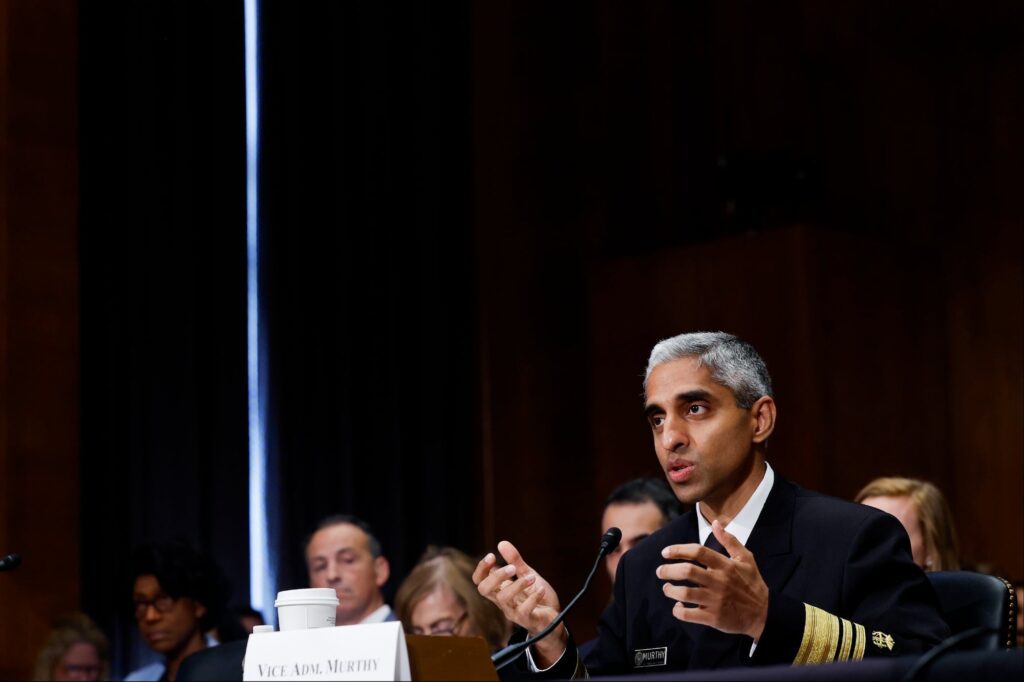Imagine logging into your Facebook account and a warning label signed by the U.S. surgeon general appears: Social media is not proven safe. It could harm the mental health of young people.
U.S. Surgeon General Vivek Murthy is calling for such social media warning labels, according to a Monday op-ed he wrote for The New York Times.
Pointing to evidence from tobacco studies and a February Brookings study showing that some parents support establishing age restrictions on social media platforms, Murthy asserted that warning labels could increase awareness of social media’s dangers and prompt changes in behavior.
“The mental health crisis among young people is an emergency — and social media has emerged as an important contributor,” Murthy wrote.
U.S. Surgeon General Vivek Murthy speaks during a June 2023 hearing about the mental health crisis for youth in the United States. (Photo by Anna Moneymaker/Getty Images)
The label would require congressional action to take effect, and there are currently no bills in Congress that push for exactly what Murthy is advocating for.
Still, multiple research studies have shown that social media is tied to mental health risks in adolescents. Brown University psychologist Dr. Jacqueline Nesi wrote in the North Carolina Medical Journal in 2020 that peer interactions increase and intensify in a social media space, leading to more negative interactions and social comparison.
Murthy linked to a 2019 Johns Hopkins study of over 6,000 U.S. youth ages 12 to 15 showing that those who spent more than three hours per day on social media were at a greater risk for anxiety and depression symptoms.
Related: The Hottest App for Teens Is All About Positivity, and It Isn’t TikTok
Murthy also emphasized that a warning label would not be enough to make social media safe for kids. He highlighted an advisory he issued last year with specific policy recommendations that have already achieved bipartisan support.
Recommendations in the advisory include tech companies creating age-appropriate safety standards and sharing data about how their platforms affect their users’ health.
Related: 76% of Teens ‘Likely’ to Start a Business Because of Social Media
Tech companies have taken steps in the past year to make their platforms safer for kids.
In April, YouTube introduced a “read-only” comments option that stops children from commenting on YouTube videos — the biggest change to YouTube’s parental controls since the platform created a more protected online experience for kids in 2021.
Meta established new content policies for teenagers using Facebook and Instagram in January. Snapchat became the first social media company to support an online safety bill in the same month.
Read the full article here












